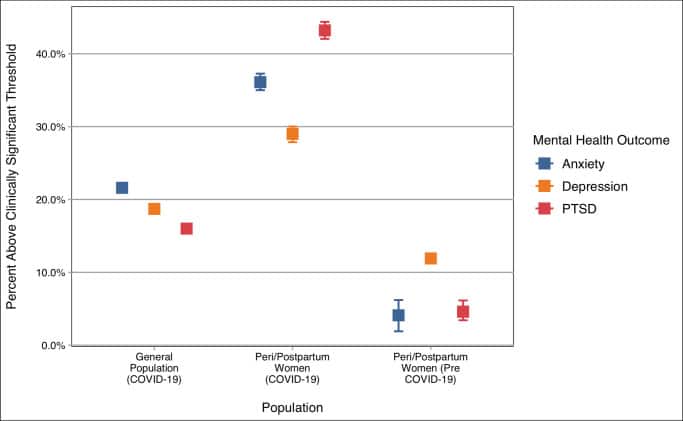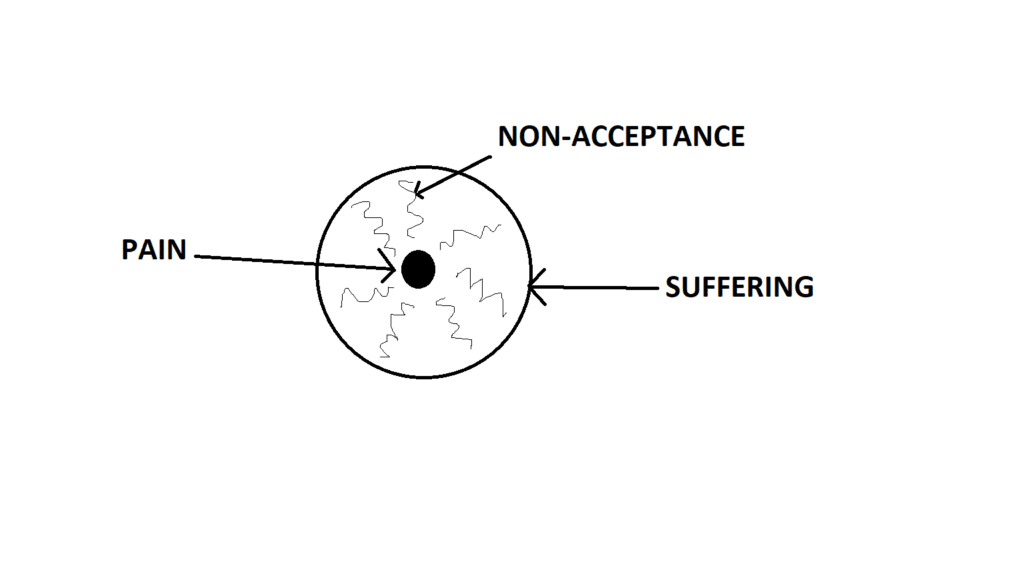Source: Photo by Greg Rosenke on Unsplash
What does it mean to be a psychotherapist in a post-2020 world? What does it mean to work in reproductive mental health at a time when rights are being systematically attacked and birthing people lack bodily autonomy and the resources to parent?
In the past months, this probably has entailed your own tears, your own grief, your own rage. There have likely been sessions with your clients when all you can think to say is “I know. I know…”
And that is okay.
We know the realities women and birthing people are facing under the best of circumstances. And I think we can all agree that we have not been living in the best of circumstances. Since the COVID-19 pandemic changed our lives in 2020, the statistics on perinatal mood and anxiety disorders (PMADs) have been on a sharp incline. 1 in 10 women suffer from clinically significant depression during pregnancy or in the first year postpartum.
If we look at the impact of the pandemic alone, we see a drastic increase in anxiety, depression, and post traumatic stress disorder in this population.
(Basu et al., 2021)
Of course this makes sense. Mothers have been isolated, coping with increased threats to the safety of themselves and their families, and forced to bear the brunt of the ever increasing demands on parents in the past two years.
There is limited data to depict how the more recent events have affected the mental health of pregnant and postpartum parents. However, we have to take into account:
- Violence, including the tragic Uvalde shooting
- The national formula shortage
- The overturn of Roe v. Wade
We could go on.
Coping skills do not seem to cut it. Of course not! And. We know that collapsing in these moments does not move us closer to our values. In our bones, we are aware that sinking further under this weight does not propel us closer to the lives we want for ourselves and for our children.
The concepts of mindfulness and radical acceptance in Dialectical Behavior Therapy (Linehan, 2015) are based in Zen Buddhism and remind us that the more we refuse to accept what is, the more we increase our own suffering. The ‘evil eye of suffering’ metaphor in DBT teaches us that when we are experiencing a moment of pain, nonacceptance serves to turn this moment into a larger experience of suffering.
In the biggest moments of pain, it can be the smallest moments of grounding, mindful awareness, and radical kindness (to ourselves and others) that have the power to transform. If we exist in a dysregulated state, that only serves to propel the dysregulation and trauma throughout the generations. Hurt people can hurt people.
As Tara Brach says, “Our attitude in the face of life’s challenges determine our suffering or our freedom.” This applies to therapists as well as the individuals we join in their journeys. We must not deny the challenges ahead. In order to face those challenges, however, we must find moments of rest and practice unrelenting compassion in this age of enormous unrest.
Join Wildflower for our upcoming training for psychotherapists, “Rest in an Age of Unrest: Psychotherapy with the Perinatal Client in Unsettling Times,” on Wednesday, July 27th from 2-4pm CST. We will discuss where we go from here and how to take care of ourselves along the way.
This training provides 2 CEUs that can be used toward obtaining or renewing the Perinatal Mental Health Certification (PMH-C). 50% of proceeds are going to Chicago Women’s Health Center.
References
Basu, A., Kim, H. H., Basaldua, R., Choi, K. W., Charron, L., Kelsall, N., Hernandez-Diaz, S., Wyszynski, D. F., & Koenen, K. C. (2021). A cross-national study of factors associated with women’s perinatal mental health and wellbeing during the COVID-19 pandemic. PloS one, 16(4), e0249780. https://doi.org/10.1371/journal.pone.0249780
Linehan, M. M. (2015). DBT® skills training manual (2nd ed.). Guilford Press.
Medically Reviewed and Fact-Checked by: Kimberly Langdon M.D., by:, M. R. and F.-C., & Editor,
M. (2022, March 21). Statistics on postpartum depression – postpartum depression resources.
PostpartumDepression.org. Retrieved June 17, 2022, from https://www.postpartumdepression.org/resources/statistics/
Tara Brach quote: “Our attitude in the face of life’s challenges determines our suffering or our freedom.”. Quotefancy. (n.d.). Retrieved June 26, 2022, from https://quotefancy.com/quote/1102757/Tara-Brach-Our-attitude-in-the-face-of-life-s-challenges-determines-our-suffering-or-our




